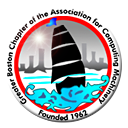Reinventing the Internet: is it time?
Joint meeting with IEEE Computer and Communications Societies
The basic design of the Internet was laid out about 30 years ago, and it works really well. The Internet is great at what it does--it supports innovation, the creation of new applications, and the integration of all sorts of information over all sorts of technology. But it has persistent problems. The research community has been trying to solve its security problems for over 20 years. There are persistent and troublesome problems of industry structure arising from its open interfaces. Open interfaces are great for innovation but tough on competition. And the Internet is hard to manage, both for large service providers and for users. And this is the situation today. What will be happening in10 years, when there are billions of small processors everywhere. Is the Internet for today's PCs, or for all the computing devices of tomorrow? The question for the research community is how best to conceive a future Internet, and how best to get there. This talk will speculate on some requirements for the future, some things we might do differently to get there, and a new research program of the National Science Foundation designed to let the research community play its part in the future. The slides from this talk are now available online at Dave Clark slides .
David Clark is a Senior Research Scientist at the MIT Computer Science and Artificial Intelligence Laboratory, where he has worked since receiving his Ph.D. there in 1973. Since the mid 70s, Dr. Clark has been leading the development of the Internet; from 1981-1989 he acted as Chief Protocol Architect in this development, and chaired the Internet Activities Board. More recent activities include extensions to the Internet to support real-time traffic, pricing and related economic issues, and policy issues surrounding the Internet, such as broadband local loop deployment. His current research looks at re-definition of the architectural underpinnings of the Internet, and the relation of technology and architecture to economic, societal and policy considerations. Dr. Clark is past chairman of the Computer Science and Telecommunications Board of the National Academies, and has contributed to a number of studies on the societal and policy impact of computer communications. He is co-director of the MIT Communications Futures Program, a project for industry collaboration and coordination along the communications value chain.
